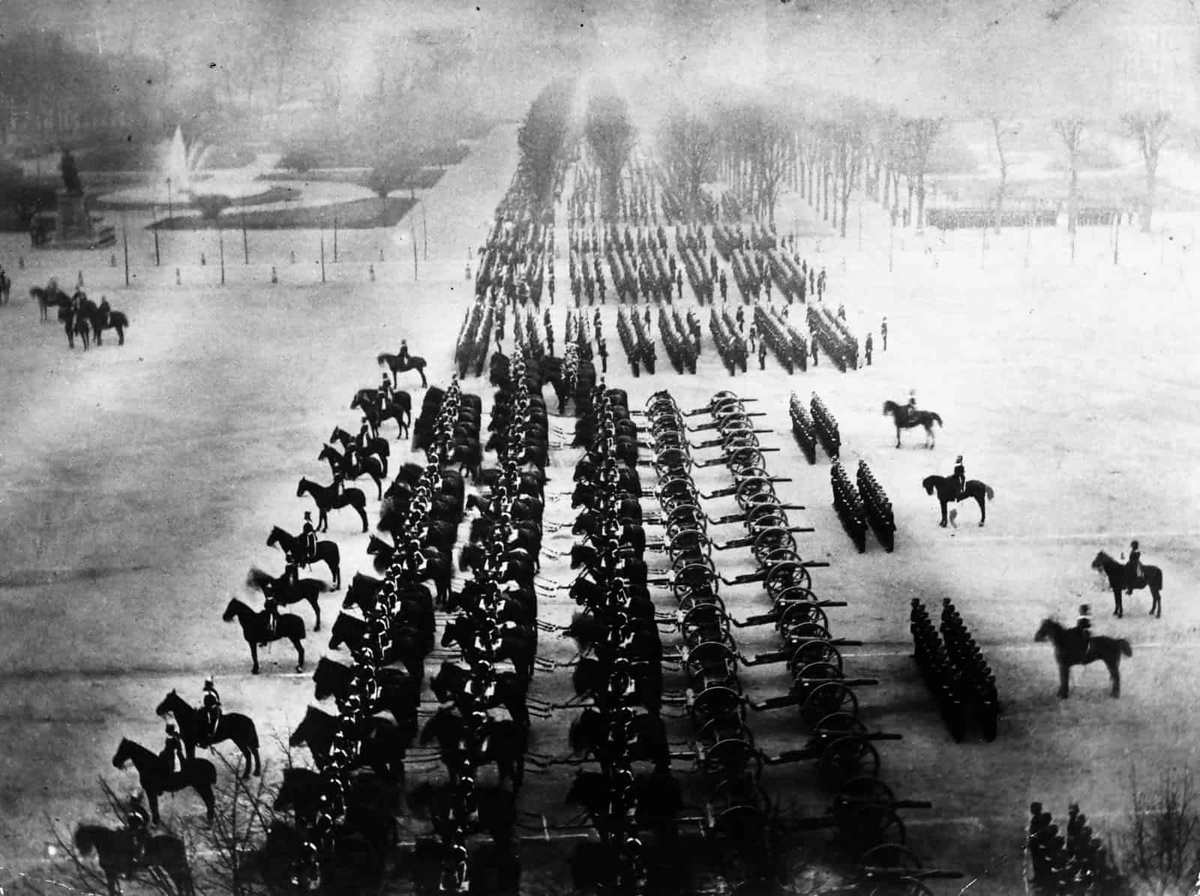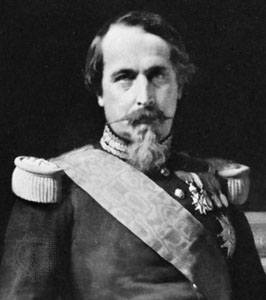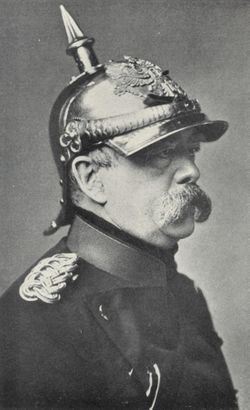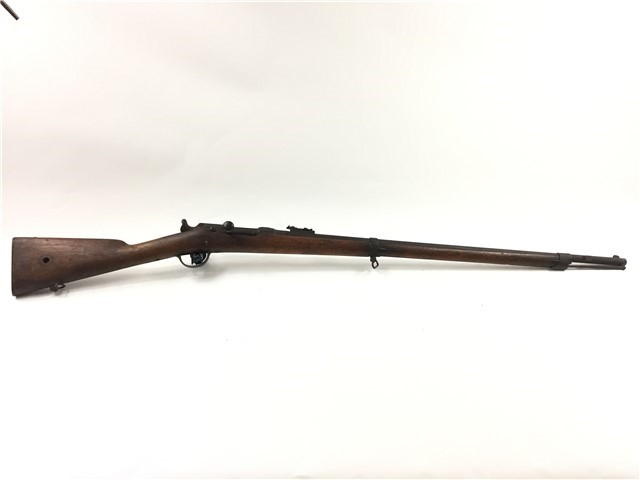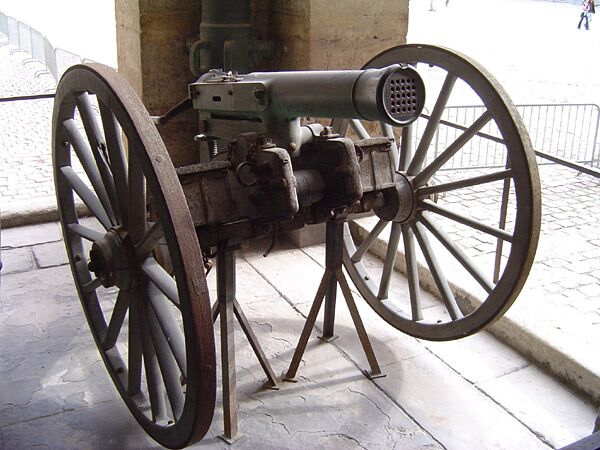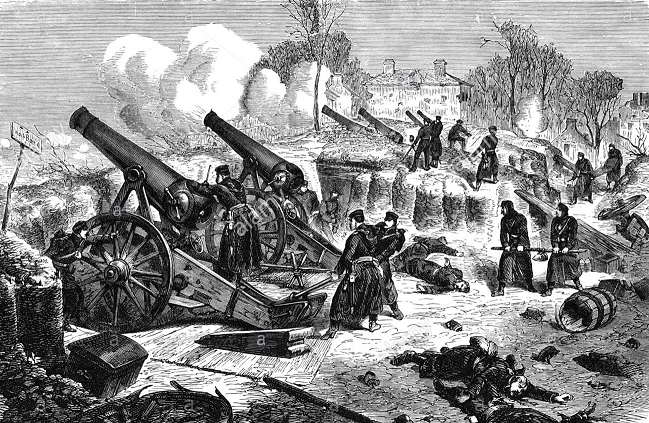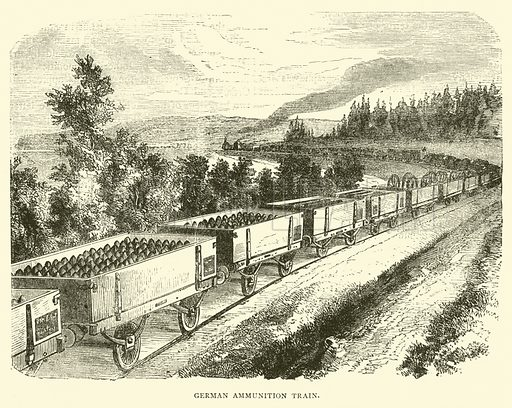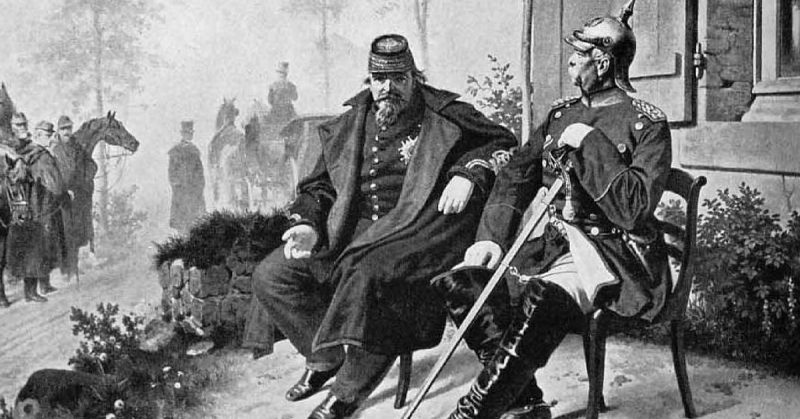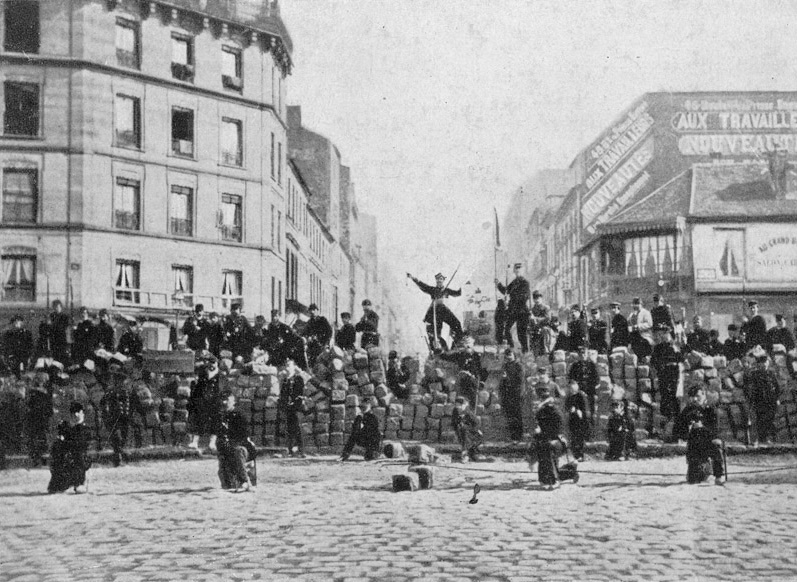1/Gather round, my friends, and let me tell you the epic story of the Franco-Prussian War.
https://en.wikipedia.org/wiki/Franco-Prussian_War
https://en.wikipedia.org/wiki/Franco-Prussian_War
2/In 1870, France had been in turmoil for almost a century. Revolution after revolution, kings, emperors, wars.
In 1851, the elected President, a nephew of Napoleon, seized power in a coup when his term was up, and declared himself Emperor Napoleon III.
https://en.wikipedia.org/wiki/Napoleon_III
In 1851, the elected President, a nephew of Napoleon, seized power in a coup when his term was up, and declared himself Emperor Napoleon III.
https://en.wikipedia.org/wiki/Napoleon_III
3/Napoleon III was determined to Make France Great Again. He did a bunch of infrastructure projects, expanded France's empire, and got France involved in a bunch of wars.
This did not always go well, such as when France got its butt kicked by Mexico.
https://en.wikipedia.org/wiki/Second_French_intervention_in_Mexico
This did not always go well, such as when France got its butt kicked by Mexico.
https://en.wikipedia.org/wiki/Second_French_intervention_in_Mexico
4/Meanwhile, Germany wasn't a country yet, just a divided region. But it was industrializing fast, becoming a manufacturing powerhouse.
Prussia was the strongest German state, and was famous for having a well-organized army. It wasn't as industrialized, though.
Prussia was the strongest German state, and was famous for having a well-organized army. It wasn't as industrialized, though.
5/Prussia had a king, but its real leader was Otto von Bismarck. Bismarck wanted to unite most of Germany into a single large country - Prussian military might combined with West German manufacturing might.
A war with France, he thought, was the perfect opportunity to do this.
A war with France, he thought, was the perfect opportunity to do this.
6/To make a long story short, Bismarck managed to provoke the not-very-bright but very aggressive Napoleon III into declaring war.
(How did he do it? Basically, with mean tweets: https://en.wikipedia.org/wiki/Ems_Dispatch)
(How did he do it? Basically, with mean tweets: https://en.wikipedia.org/wiki/Ems_Dispatch)
7/Now, many people thought France would beat Prussia, because France had kicked Prussia's butt up and down the block under the real Napoleon half a century earlier.
And France had some technological advantages, including good rifles and a proto machine gun.
And France had some technological advantages, including good rifles and a proto machine gun.
8/But Germany had great artillery, and -- even more importantly -- trains that could move troops and supplies to the front quickly.
9/Also, while Germans were fired-up and nationalistic and optimistic, French people were kind of tired from many decades of war and revolution, and didn't have a lot of confidence in their aggressive, self-aggrandizing, rather stupid "emperor".
https://www.amazon.com/Franco-Prussian-War-German-Conquest-1870-1871/dp/052161743X
https://www.amazon.com/Franco-Prussian-War-German-Conquest-1870-1871/dp/052161743X
10/Basically, Prussia kicked France's ass in short order. This culminated in Napoleon III leading a big attack and getting captured along with his whole army (did I mention he was dumb?). Bye bye, Napoleon III.
https://en.wikipedia.org/wiki/Battle_of_Sedan
https://en.wikipedia.org/wiki/Battle_of_Sedan
11/But the French weren't done fighting!!
When the Germans put Paris under siege, the Parisians did what they had been doing for a century: They launched a REVOLUTION!
A communist revolution, in this case.
https://en.wikipedia.org/wiki/Paris_Commune
When the Germans put Paris under siege, the Parisians did what they had been doing for a century: They launched a REVOLUTION!
A communist revolution, in this case.
https://en.wikipedia.org/wiki/Paris_Commune
12/80 years earlier, this had worked very well for France. A popular revolution created a "nation in arms" that was able to overwhelm its enemies (including Prussia) via revolutionary fervor and sheer weight of numbers.
But this time, Germany was a nation in arms as well...
But this time, Germany was a nation in arms as well...
13/Nationalism, it turned out, inspired Germans just as much as revolutions inspired France...but also allowed for greater organization.
United, Germany had even more people than France, and they didn't spend all day fighting each other.
United, Germany had even more people than France, and they didn't spend all day fighting each other.
14/By this time, however, France had already formally surrendered to Germany. The nation was exhausted, and the Paris Commune was unable to ignite yet another nationwide uprising to throw out the Germans.
Revolutionary fervor did not avail this time.
Revolutionary fervor did not avail this time.
15/The remnants of the French Army marched right in and bloodily suppressed the new communist-flavored Revolution. https://www.bradford-delong.com/2015/07/todays-economic-history-suppression-of-the-paris-commune.html
16/The French Army established a democratic republic. Because of the spanking by Germany and the desire to take back the territories Germany had annexed, this republic had a militaristic tinge to it. But because of the legacy of revolution, it was also deeply divided.
17/Napoleon III, suffice it to say, utterly failed to Make France Great Again. But the new revolution that the war sparked also failed to achieve utopia or restore the country's power and prestige (as the first Revolution had).
In fact, nothing made France great again, ever.
In fact, nothing made France great again, ever.
18/Thanks to Bismarck's unification of Germany, France now had a neighbor that had a much bigger population and was much more of a manufacturing powerhouse. One motivated and united by nationalism.
France's time as continental Europe's most powerful nation was over.
France's time as continental Europe's most powerful nation was over.
19/What do we learn from the Franco-Prussian War?
1. Leadership matters. Just because a bloviating idiot promises to restore national greatness doesn't mean he has any ability to do so. In fact, he'll probably just lead the country to ruin.
1. Leadership matters. Just because a bloviating idiot promises to restore national greatness doesn't mean he has any ability to do so. In fact, he'll probably just lead the country to ruin.
20/2. Internal divisions weaken a country. A nation that spends all its effort fighting itself in waves of utopian revolutionism and conservative reaction will generally be unprepared to meet external threats.
21/3. Nationalism, manufacturing prowess, and militarism are a very powerful combination.
(But as Germany's overreach 44 years later shows, this approach can get you into big trouble, because it pushes you to keep fighting wars and to think you're invincible.)
(But as Germany's overreach 44 years later shows, this approach can get you into big trouble, because it pushes you to keep fighting wars and to think you're invincible.)
22/Let us meditate on these lessons, and think about whether there are any national rivalries in the modern day that might be a little bit analogous to the Franco-German contest of 1870.
(end)
(end)
By the way, if you want a really interesting first-hand account of the fighting, check out Phil Sheridan's memoirs. He was one of the best U.S. generals in the Civil War, and President Grant sent him to observe the Franco-Prussian War.
https://www.gutenberg.org/files/4362/4362-h/4362-h.htm#linkch15
https://www.gutenberg.org/files/4362/4362-h/4362-h.htm#linkch15

 Read on Twitter
Read on Twitter